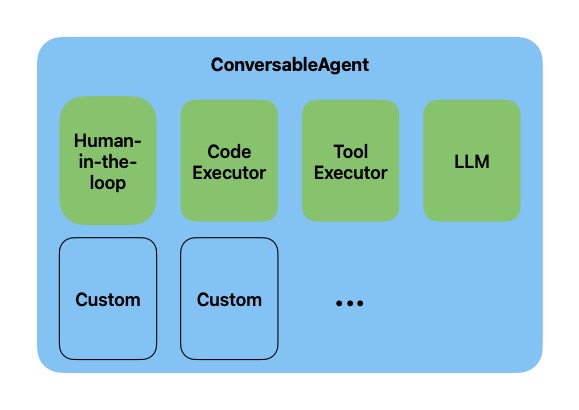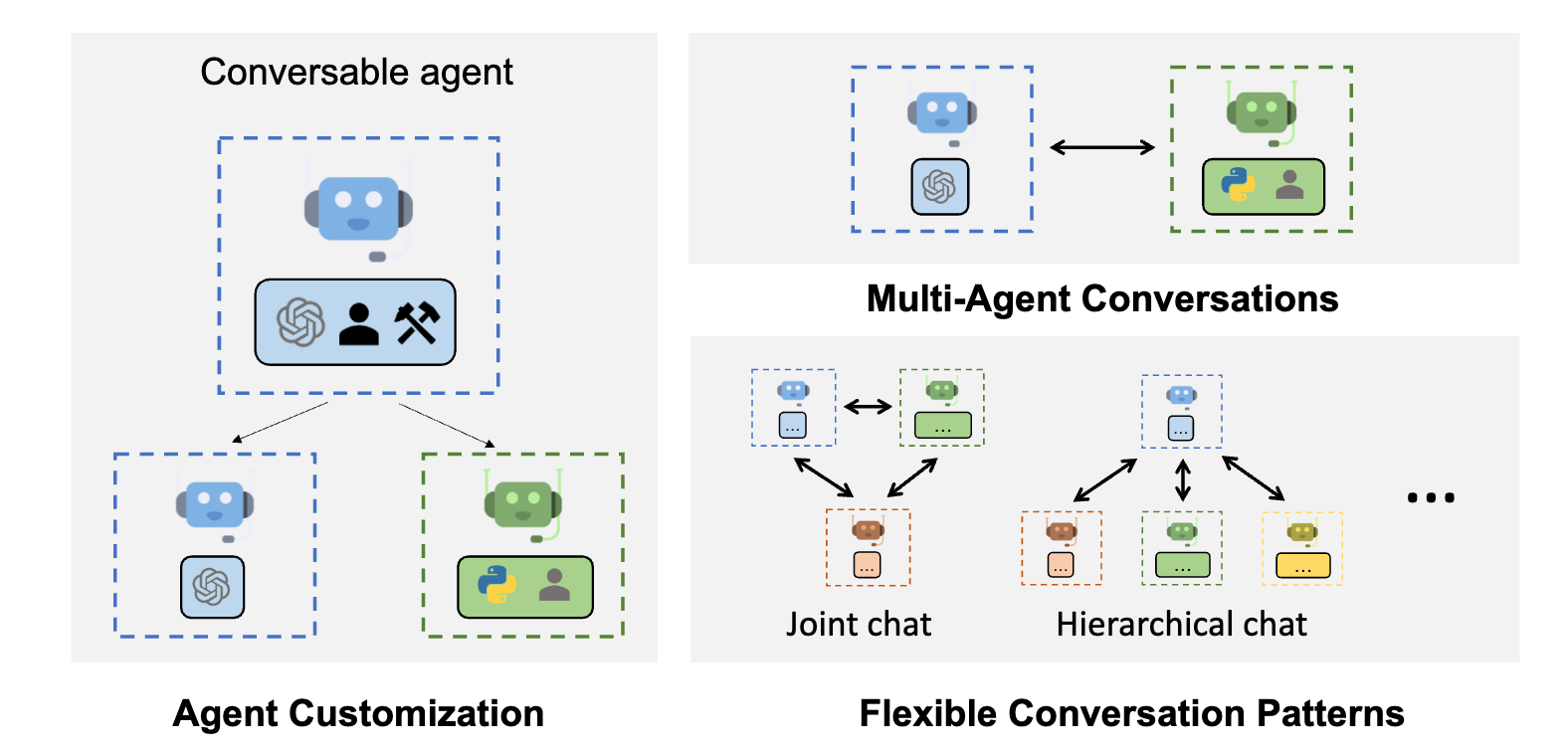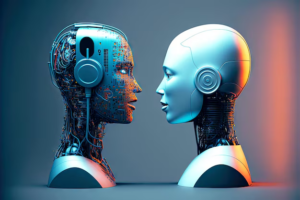What is Microsoft Autogen?
Microsoft Autogen is an open-source framework that helps AI models work together better. It lets developers create systems where large language models, like GPT-4, can use tools and APIs to automate tasks and make decisions more efficiently.
What is an Agent in AutoGen?
In AutoGen, an agent is a unit that can communicate with other agents around it by sending and receiving messages. An agent can use various tools, like a large language model such as GPT-4, code executors like an IPython kernel, or even humans. It can also combine these tools and other customizable components. You can turn each component on or off and adjust it to meet your application’s needs.
For example, a Conversable agent

Key Features of Microsoft Autogen

- Agent Collaboration
Autogen allows multiple agents to work together towards common goals. For instance, one agent may analyze data while another offers context-based decision-making.
2. Tool and API Integration
Autogen easily connects with APIs and external tools, enabling it to gather live data, automate tasks, and perform special calculations, enhancing the capabilities of LLMs.
3. Natural Language-Based Orchestration
Users can define workflows and tasks using plain language, making it easy for anyone, even non-developers, to use. Autogen translates these commands into actions, ensuring user-friendliness.
4. Open-Source Flexibility
As an open-source tool, Autogen is customizable, allowing developers to create tailored solutions while benefiting from Microsoft’s ecosystem.
Applications of Microsoft Autogen
- Business Process Automation
Organizations can automate tasks like data entry, reporting, and customer support.
- Data Analysis and Insights
Autogen agents can analyze large datasets, find trends, and offer helpful recommendations.
- Software Development
Autogen makes coding, debugging, and testing easier with AI agents designed for development.
Benefits of Microsoft Autogen

- Improved Productivity
AI agents take care of repetitive tasks, allowing users to focus on important decisions.
- Enhanced Collaboration
Autogen helps AI agents and human users work together, improving outcomes in complicated situations.
- Cost Efficiency
Automating tasks lowers operational costs since fewer resources are required for routine activities.
Challenges and Considerations
- Data Biases: Large language models, trained on extensive data, can inadvertently carry biases present in the source data. Consequently, the models may generate outputs that could be potentially biased or unfair.
- Lack of Contextual Understanding: These models understand language well but struggle with real-world situations, which can lead to mistakes.
- Lack of Transparency: Their complexity makes it hard to see how they arrive at certain answers.
- Content Harms: These models can produce harmful content, so it’s important to use moderation services to prevent this.
- Inaccurate Content: Don’t rely solely on language models for important decisions, as they can create false information.
- Potential for Misuse: Without proper controls, these models might be used to spread disinformation or harmful content.
Conclusion
Microsoft Autogen represents a leap forward in AI-driven collaboration and automation. By enabling seamless interaction between AI agents, tools, and users, it empowers businesses to achieve more with less effort. As it continues to evolve, Autogen is set to become a cornerstone for organizations embracing AI in their workflows.

